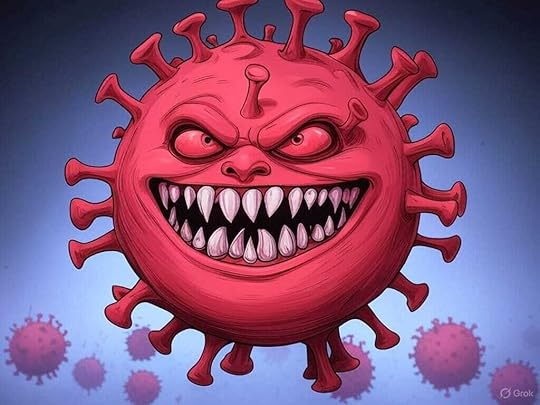Trust in Science Plummets Even More: My Early COVID Doubts Were Correct.

It is now becoming more and more likely that the coronavirus was not the result of an unholy love affair between a bat and a pangolin but rather that it originated from a lab leak at the Wuhan Institute of Virology.
The hypothesis that the coronavirus originated from a lab leak at the Wuhan Institute of Virology was once vehemently dismissed as a fringe idea created by conspiracy theorists. Now, it is gaining traction. Agencies like the FBI and DOE have leaned toward this possibility, and public discourse has shifted, as seen in the article of a few days ago by Zeynep Tufekci in the New York Times, which argues that early suppression of this idea eroded trust in science.
I’m tempted to say, 'I was right' because, in a 2024 post, I argued that the Chinese government’s drastic (even brutal) response—such as the Wuhan lockdown—suggested they feared something beyond a natural virus, perhaps a biological attack. This perspective also sheds light on anomalies, such as Russia and China’s 2020 medical missions to Italy, which some reports suggest prioritized sample collection over aid.
There is no definitive proof of a lab leak, and it is unlikely that there ever will be. But this saga is another heavy blow to the credibility of science. Stifling debate and demonizing dissent, as it was done during the pandemic, can undermine trust in science—a problem not unique to virology. Climate science, for instance, faces similar challenges. The Trump administration is unceremoniously dumping it as a superstition, while skepticism grows globally.
Climate science is an infinitely more solid and refined set of ideas compared to the half-baked “truths” proposed a few years ago about the pandemic. But when open inquiry is suppressed, credibility suffers, and as the ancients said, you reap what you sow. Scientists are grappling with that lesson now.
My 2024 post, excerpted below, discussed several aspects of the virus’s origins and the global overreaction that seem increasingly plausible as a result of fears of a biological attack.


Epidemics have happened many times in the past. So, when a new respiratory virus appeared in the city of Wuhan, China, in January 2020, it was not an unusual event, even though the initial reports described it as aggressive and dangerous. What was remarkable was the reaction of the Chinese government.
Quarantines are a normal reaction to epidemics, but it had never happened in recent history that an entire city was subjected to a strict quarantine of all inhabitants, regardless of whether they were healthy or sick. Indeed, a new term, “lockdown,” was later used for this action. In addition, it was the first case to see extensive applications of “NPIs,” including restrictions such as social distancing, travel bans, shutting down schools and economic activities, sanitizing everything, and more.
We’ll probably never know what led the Chinese government to react the way it did. However, it is difficult to interpret their behavior as a reaction to a natural virus. What may have pushed them to act was the perception that the virus was something much more dangerous. A bioweapon, either leaked from a research lab or purposefully spread by an enemy as an act of war. For obvious reasons, the Chinese government always denied the idea of a lab leak, but it is a perfectly possible hypothesis.



